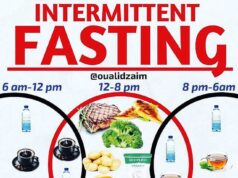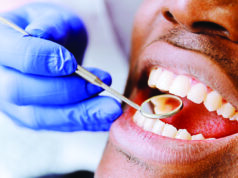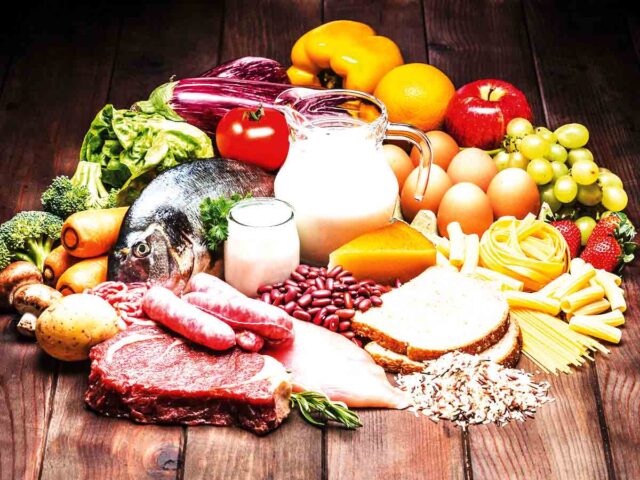
Eating a healthy diet does not have to be complicated as most people think. It is not staying unrealistically thin, depriving yourself of food or setting strict restrictions. The truth is: while some foods or nutrients have been shown to have a beneficial effect on the body, it is your overall dietary pattern that is most important. Beatrice Nakibuuka explores what a healthy diet is and why everyone needs it.
When Dr Paul Kasenene, a Ugandan nutritionist, posted in August 2021 on his Twitter and Facebook pages that eating red meat was dangerous to human health, his post was met with a huge backlash including abuse by some members of the public.
But Dr Kasenene was simply sharing a researched information to save Ugandans from food-related health complications.
Hosea 4:6 states: “My people are destroyed for lack of knowledge. Because you have rejected knowledge, I also will reject you from being priest for Me; Because you have forgotten the law of your God, I also will forget your children.”
Even amidst the backlash, Dr Kasenene has since maintained his ‘gospel’ of healthy eating, emphasizing eating organic food, especially vegetables and fruits.

What is healthy eating?
According to Dr Kasenene, healthy eating includes a variety of healthy foods in an array of colours.
Think about a rainbow on your plate with foods that are loaded with vitamins, fibre and minerals.
Such foods would improve your overall health, provide the body with essential fluids and nutrients, keep your skin, bones, teeth and eyes healthy and strong, and lower your risk of catching diseases.
According to dietary guidelines, a healthy eating plan emphasizes fruits, vegetables, whole grains, and fat-free or low-fat milk and milk products.
It also includes a variety of protein foods such as lean meat and poultry, eggs, legumes (beans and peas), soy products, nuts, and seeds.
Ivan Philip Baguma, a dietician at Nella Organics, says a healthy diet must be low in added sugars, sodium, saturated fats, trans-fats and cholesterol, and stay within your daily calorie needs. Such healthy foods include:
Vegetables
There are several types of vegetables that contain different nutrients and minerals. They can be grilled, steamed or sautéed.
Since there are several varieties with different health benefits, one should remember to try a new vegetable each week in order to explore all the different health benefits contained in them.
Fruits
It is a blessing and more to be in a country that has many fresh fruits in the market throughout the year.
Baguma says we need fruits beyond apples and bananas. He says one needs fruits such as mangos, pineapples, oranges, watermelon, peers and many others.
When fresh fruit is not in season, try a frozen, canned or dried variety.
“Be aware that canned fruit may contain added sugars or syrups. Choose canned varieties of fruits packed in water or in its own juice,” he says.
Calcium-rich foods
As humans, we need strong bones and teeth. Calcium mineral is a great player in building of those strength.
Therefore, in addition to fat-free and low-fat milk, consider low-fat and fat-free yoghurts without added sugars.
These come in a variety of flavours and can be a great dessert substitute.
Silverfish is another great, cheap and commonest source of this bone-strengthening mineral.
Besides calcium, the body needs other minerals like magnesium and manganese.
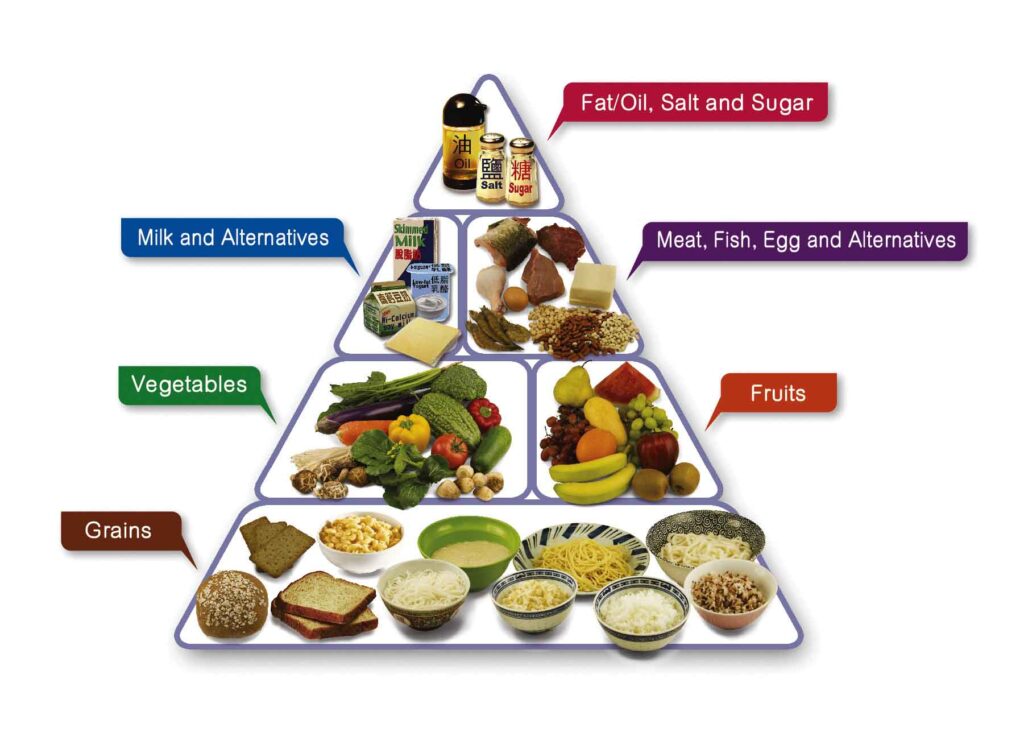
Antioxidants
Antioxidant-rich foods support the body’s ability to resist oxidative stress which is a contributing factor to illness and aging.
Baguma says antioxidants are important in suppressing cancer cell growth, maintaining bone health, supporting antifungal and antimicrobial activity as well as promoting wellbeing.
Such foods include fruits such as carrots, papayas, watermelon, apples, soursop, grapes, and avocado; vegetables such as pumpkins, spinach, red cabbage, sweet potatoes, garlic, onions, turmeric; and foods like peanuts, millet, among others.
Meat
This is a good source of protein, iron, calcium, zinc, omega-3 fatty acids and the B vitamins.
It should, however, be noted that meat can only empower your body with these health benefits if they are fully cooked.
It is always advisable to practice proper food safety practices when handling them to avoid food-borne illnesses.
If your favorite recipe calls for frying fish or breaded chicken, try healthier variations by baking or grilling.
Local and white meat are healthy when eaten in regulated amounts because too much of it can cause inflammations.
They are also linked to diseases such as cancer sometimes.
Meat can be substituted with dry beans which are high sources of iron, protein and have fewer calories.
This might be bad news for some, but beans are healthy. If such beans cause bloating, remember to soak them overnight and add fresh water before cooking them the next day.
Baguma emphasizes that healthy eating is all about a balanced diet.
“You can enjoy your favourite foods, but the major rule is eating them only once in a while and balancing them with healthier foods and more physical activities if you want to maintain a healthy weight,” he says.

How to improve nutrition
Both Baguma and Dr Kasenene say one can never go wrong by eating 90 per cent of a plant diet and only 10 per cent of animal food sources.
They say it is even healthier to eat most of the foods.
The two note that one should have more of natural, unprocessed foods so they do not have to worry about calorie-counting.
Fasting, according to Baguma, has been associated with several health benefits such as weight loss, improved blood sugar control, enhanced heart health, decreased inflammation and better brain function.
The abstinence from all foods and drinks for a set period of time can be done over 24 hours or intermittently cycling between periods of eating and fasting, ranging from a few hours to a few days.
However, people with chronic illnesses like diabetes are not advised to fast because it might cause complications.
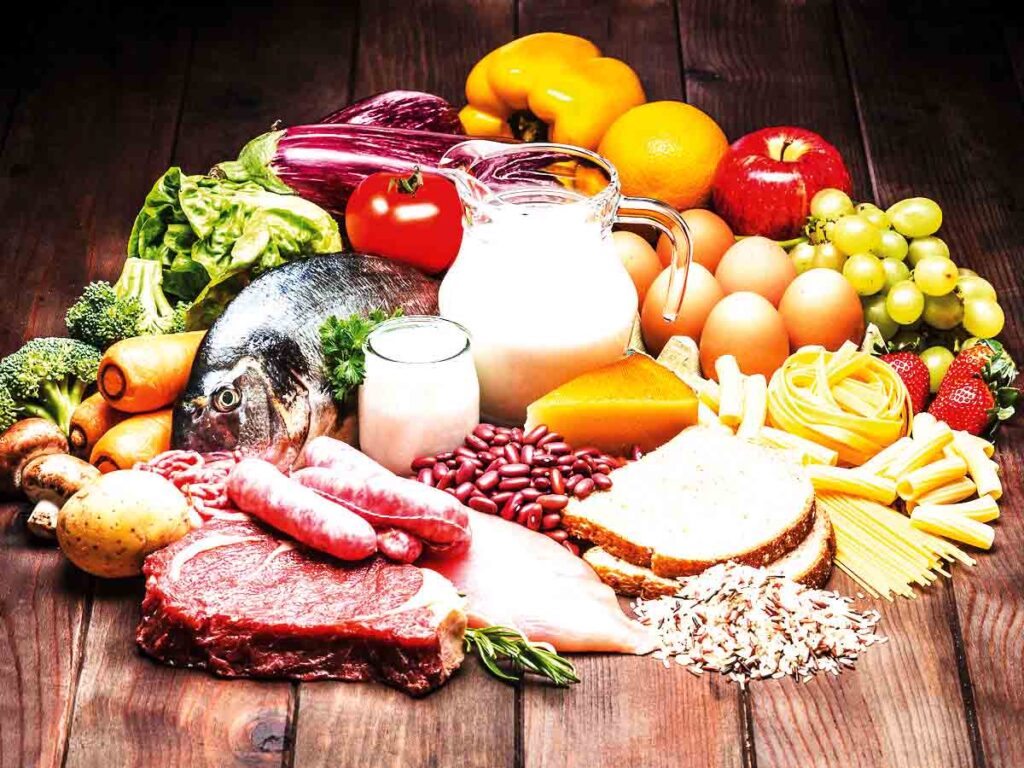
Eating frequency
Many nutritionists recommend eating three balanced meals per day. Calorie intake per meal should depend on one’s age, weight, gender and level of activity.
The most important meal in the day is breakfast because it gives the body fuel to run through the day.
Baguma recommends that one should start eating when they are hungry and stop eating when they feel satisfied. He discourages people from starving or getting stuffed.
“Avoid going to extremes and practice mindfulness when eating,” Baguma says.
“Ensure that you make healthy choices of food that are a balanced diet. Whether you are at home or work, ensure to keep active throughout the day.
“If you find yourself hungry before you can get a proper meal, get a healthy snack so that you do not starve. Do not eat if you are not hungry,” he adds.
Dr Kasenene recommends that one should aim at having their last meal about two hours before bedtime- not after 9 pm. Avoid having a heavy meal before going to bed because the body uses a lot of energy to break down food in the night.
Diet and blood groups
New research developments show that certain enzymes are more present in people of different blood groups.
They, therefore, break down certain foods better. However, Dr Kasenene maintains that no matter what your blood group is, you should not over-dictate your diet.
At the end of the day, you need to eat a healthy diet rather than a blood group diet.
“Imagine if your blood group allows you to eat meat. This does not make you healthier. On the contrary, it makes you prone to disease, increases your body weight, and other health-related challenges even when you naturally have the enzymes that would digest it,” Dr Kasenene says.
He adds that a blood group diet is not realistic, especially if one is in a family where members have more than one blood group.
He says some things are paramount like having at least five servings of vegetables per day.
The diet plans
With so many diets available, what you choose from depends on your purpose. It could be about bodybuilding, weight loss or just staying healthy.
You need a healthy and effective diet because some diets, work very fast, especially for weight loss, but you will regain as fast as you lost.
It is important that this diet plan should be followed your entire life.
“Most people go for diets that promise quickest and painless results, but are not sustainable. As a result, they are on and off diets which lower metabolism and end up at a heavier weight than when they started,” Dr Kasenene says.
In order to lose weight, you have to eat fewer calories and be more active.
Your diet should include exercise, allowing a variety of foods from all the food groups, not relying heavily on supplements, allowing a little snacks between meals, and drinking plenty of water.
Do not choose a diet plan that will leave you feeling hungry. Look for plans that promote foods that are high in water and are fibre-rich such as soups, fruits and vegetables.
These fill you up and reduce food cravings to help you stick to your diet plan without feeling deprived.
















